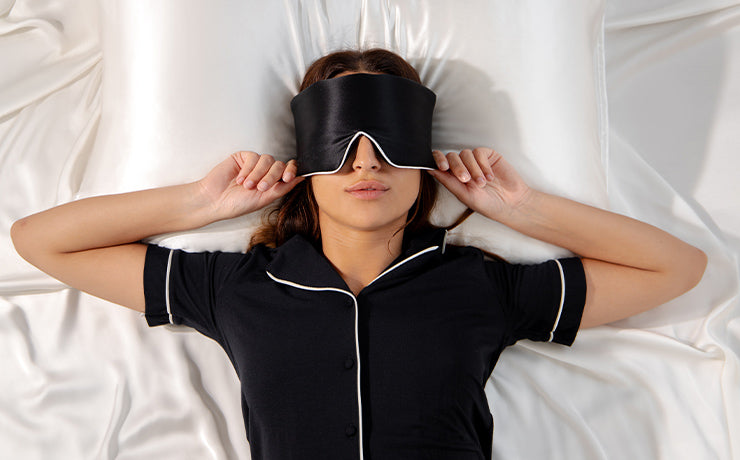Sleep Quality: How to determine if you're getting poor sleep
Do you ever wake up feeling tired and groggy even if you had eight full hours of sleep? You might be surprised to know that you have poor-quality sleep. In today's fast-paced world, many prioritize work, kids, social engagements, and other responsibilities over getting a good night's rest. However, the quality of your sleep is just as important as the quantity.
Poor sleep health can worsen your mood, impair your cognitive function, and negatively affect your emotional well-being. While many people recognize they aren't getting enough sleep, fewer understand that the nature of their sleep is equally critical. In this article, we'll explore the most important signs of poor sleep quality and practical steps you can take to ensure you're getting the restful sleep you need. Let's dive in!
THE BASICS OF SLEEP QUALITY
Unlike sleep quantity, which measures the number of hours slept, sleep quality refers to how well you sleep, including the depth and restorative nature of your sleep cycles. Here are the most crucial aspects of sleep efficiency:
-
Sleep latency: This is the time it takes to fall asleep. Ideally, you should fall asleep within 20 minutes for good sleep quality.
-
Sleep duration: The total amount of time spent sleeping. While the recommended duration is 7-9 hours, it's important that these hours are restful.
-
Sleep disturbances: Interruptions in sleep, such as waking up multiple times during the night, disrupt sleep quality. Minimal disturbances are crucial for high-quality sleep.
-
Sleep cycles: It's vital to experience restorative sleep cycles, including REM (Rapid Eye Movement) and non-REM stages. Both stages are essential for physical and mental health.
-
Sleep efficiency: How much time do you spend asleep while in bed? Staying asleep for 85% of the night is a good way of measuring sleep efficiency.

6 SIGNS OF POOR SLEEP QUALITY
Here are the most important signs you're not getting a good night's sleep, which might lead to sleep disorders:
-
Difficulty falling asleep or staying asleep: If you find yourself constantly tossing and turning or waking up multiple times during the night and struggling to fall back asleep, your sleep quality is likely compromised.
-
Feeling tired upon waking: Waking up feeling unrefreshed and tired, even after a full night's sleep, is a red flag. It likely indicates that your sleep isn't restorative, and a sleep disorder like sleep apnea might be the culprit.
-
Daytime sleepiness and fatigue: Do you yawn or struggle to keep your eyes open at work even after a supposedly good night's rest? This is often a sign that your body is not getting the deep, restorative sleep it needs.
-
Mood changes: If you notice a significant change in your mood or emotional stability, such as irritability, mood swings, anxiety, and depression, it might be due to poor sleep quality.
-
Difficulty concentrating or memory problems: Poor sleep affects the brain's ability to process information and consolidate memories. If you find it hard to focus or remember things, your sleep quality may be to blame.
-
Increased health problems: Chronic sleep problems are associated with different health issues, such as heart disease, obesity, diabetes, and reduced immune function. If you're experiencing frequent illnesses, unexplained weight gain, or other health issues, it might be time to evaluate your sleep habits.
HOW TO IMPROVE SLEEP QUALITY
If you're suffering from sleep deprivation, it's time to employ the right strategies that'll help you get back on track with your sleeping routines:
-
Limit stimulants and heavy meals before sleep: Avoid caffeine and alcohol intake as well as heavy meals at least 4-6 hours before sleeping. Opt for a light snack instead if you're hungry.
-
Create a sleep-inducing environment: Don't expect your body to fall asleep in an airport lounge in broad daylight. Instead, ensure you're in a cool, dark, and quiet environment, lying on a comfortable mattress with your favorite sleep mask and set of earplugs.
-
Establish a sleep routine: Always maintain a consistent sleep schedule, even on weekends. Go to bed and wake up at the same time daily to help regulate your body's internal clock.
-
Practice meditation and relaxation techniques: Before bed, incorporate relaxation techniques such as reading, taking a warm bath, or doing breathing exercises. Mindfulness and meditation can also reduce stress and prepare your mind for sleep.

ENHANCE YOUR SLEEP QUALITY WITH DROWSY SLEEP MASKS
To sum up, understanding and improving your sleep quality is key to your mental and physical health. The sleep foundation suggests that a consistent environment and routine significantly affect sleep quality and contribute to good quality sleep, including REM sleep which is crucial for cognitive functions and overall health. Before resorting to clinical sleep medicine for restful sleep, follow our strategies above and enjoy deep sleep every night. We highly advise combining your sleep rituals with a Drowsy sleep mask for optimal results. Immerse yourself in the soothing feeling of a mulberry silk eye mask hugging your face and fall into a deep, beauty sleep every night. Choose from a wide range of vibrant options such as the sophisticated Black Jade sleep mask, the serene White Akoya Pearl sleep mask, the refreshing Green Sapphire sleep mask, the luxurious Purple Martini sleep mask, or the passionate Red La Vie En Rouge sleep mask. With these and many more colors to discover, tailor your sleep experience to your personal style and enhance your nightly rest. For couples, consider our Lovers Pack for endless snoozes with your significant other, ensuring that both of you can enjoy blissful, uninterrupted sleep.







